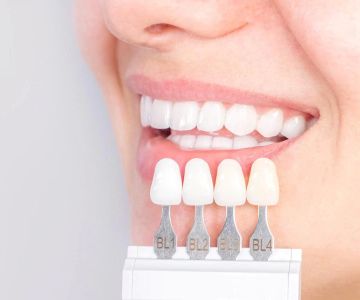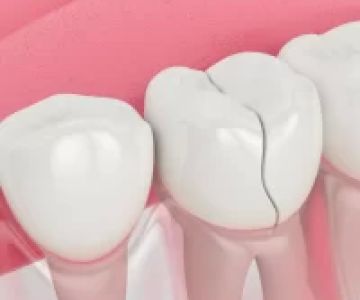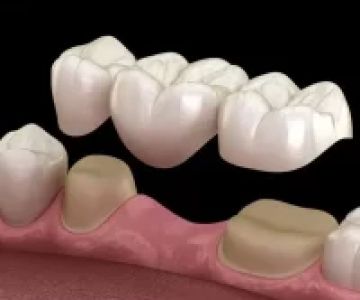How to Choose the Right Floss for Sensitive Teeth
- Understanding Sensitive Teeth
- Importance of Flossing for Sensitive Teeth
- Choosing the Best Floss for Sensitive Teeth
- Flossing Techniques for Sensitive Teeth
- Recommended Products for Sensitive Teeth
- Final Thoughts
Sensitive teeth can be a significant problem, affecting a large number of people worldwide. It often leads to discomfort when consuming hot, cold, or sweet foods. Understanding what causes sensitivity in teeth is key to selecting the appropriate floss for your oral care routine.
Tooth sensitivity occurs when the protective layer of enamel gets worn down, exposing the underlying dentin. This makes teeth more vulnerable to external stimuli like temperature changes. Sensitive teeth can be aggravated by harsh brushing, improper flossing, or using unsuitable oral care products.
Flossing plays a crucial role in maintaining dental health, especially for those with sensitive teeth. While brushing can clean the surface of teeth, flossing helps remove plaque and food particles from between the teeth and along the gum line, areas often missed by toothbrushes.
For individuals with sensitive teeth, choosing the right floss is essential. Some flosses can be too abrasive, irritating the gums and further exacerbating sensitivity. Using a gentle yet effective floss can provide a balance between thorough cleaning and comfort.
When selecting floss for sensitive teeth, it’s important to look for products specifically designed for this purpose. Here are some tips for choosing the right floss:
- Choose soft, gentle floss: Look for floss made from materials like nylon or Teflon that are less likely to irritate the gums. Waxed floss can be a good option for sensitive teeth as it slides more easily between teeth without causing discomfort.
- Avoid flavored floss: While flavored flosses might seem appealing, they can contain added chemicals that may irritate sensitive gums. Stick to unflavored floss or those designed for sensitive teeth.
- Look for thick, sturdy floss: A thicker floss will be less likely to snap while flossing and can clean effectively without causing pain or discomfort. Make sure the floss is designed to be durable yet gentle on the gums.
- Consider dental tape: Dental tape is a wider, flatter type of floss, which may be more comfortable for those with sensitive gums. It is often recommended for people with more space between their teeth.
Flossing technique is just as important as the type of floss used. Here are some tips for flossing your sensitive teeth effectively:
- Be gentle: Avoid snapping the floss between your teeth, as this can damage your gums and cause further discomfort. Gently glide the floss between your teeth and along the gum line.
- Don't skip the gum line: Ensure that you floss all the way to the gum line, as plaque buildup near the gums can contribute to sensitivity. Be gentle, but thorough.
- Floss regularly: Consistency is key. Flossing once a day helps prevent plaque buildup and maintains healthy gums and teeth.
For those with sensitive teeth, here are a few products worth considering:
- Oral-B Glide Pro-Health Comfort Plus Dental Floss: Known for its smooth texture and gentle flossing, it is designed to slide easily between teeth without causing discomfort.
- Tom's of Maine Waxed Antiplaque Floss: This natural, waxed floss is perfect for sensitive gums, offering a gentle yet effective cleaning experience.
- Reach Gentle Gum Care Dental Floss: Soft and easy to use, this floss is designed specifically for those with sensitive gums and teeth, providing a thorough clean without causing irritation.
Choosing the right floss for sensitive teeth is an essential part of maintaining good oral hygiene. By selecting the right products and using proper flossing techniques, you can reduce discomfort and keep your teeth healthy. If you're still unsure about which product to choose, consider speaking with your dentist for personalized recommendations.
To learn more about the best oral care products for sensitive teeth, check out Dentistry Toothtruth for expert advice and product recommendations.







 Westgate Dental Arts3.0 (2 review)
Westgate Dental Arts3.0 (2 review) Coventry Family Dental4.0 (247 review)
Coventry Family Dental4.0 (247 review) Familia Dental3.0 (1028 review)
Familia Dental3.0 (1028 review) Dr. Daniel S. Fife, DDS4.0 (31 review)
Dr. Daniel S. Fife, DDS4.0 (31 review) Dentistry At Suburban Square: Michael I. Wollock, DMD4.0 (1228 review)
Dentistry At Suburban Square: Michael I. Wollock, DMD4.0 (1228 review) Comfort Care Dental4.0 (1156 review)
Comfort Care Dental4.0 (1156 review) The Importance of Oral Health Education During Pregnancy for a Healthy Pregnancy
The Importance of Oral Health Education During Pregnancy for a Healthy Pregnancy Why Skipping Dental Checkups Can Lead to Bigger Oral Health Problems
Why Skipping Dental Checkups Can Lead to Bigger Oral Health Problems Best Tips for Brushing Your Teeth Properly for Healthy Gums: Essential Techniques for Oral Health
Best Tips for Brushing Your Teeth Properly for Healthy Gums: Essential Techniques for Oral Health Advantages of Porcelain Dental Restorations
Advantages of Porcelain Dental Restorations How Can Diabetes Cause Tooth and Gum Problems? Preventing and Managing Oral Health Issues
How Can Diabetes Cause Tooth and Gum Problems? Preventing and Managing Oral Health Issues Healthy Habits for Promoting Good Oral Health and Hygiene: Tips for a Healthy Smile
Healthy Habits for Promoting Good Oral Health and Hygiene: Tips for a Healthy Smile